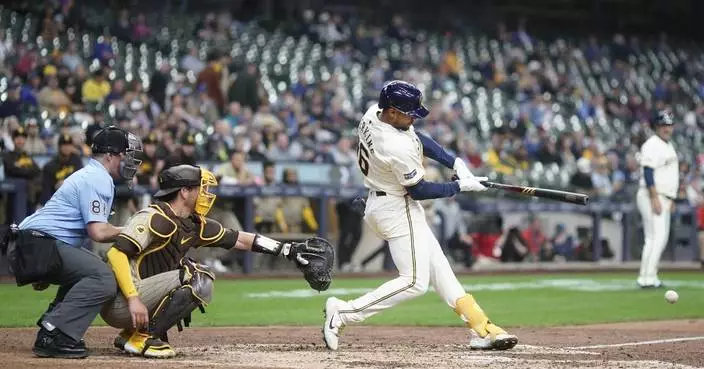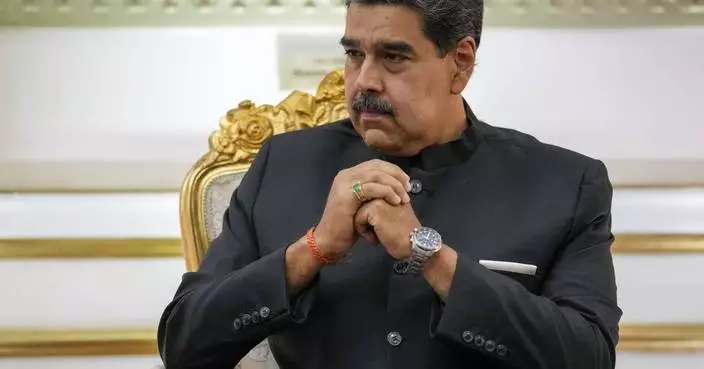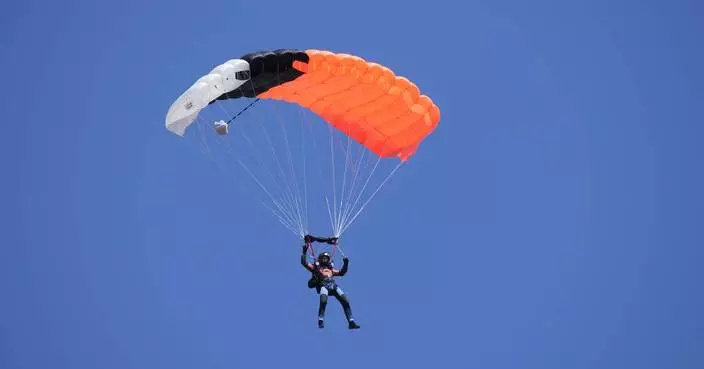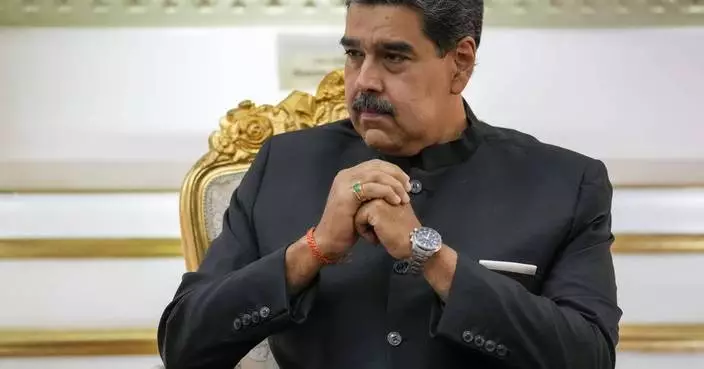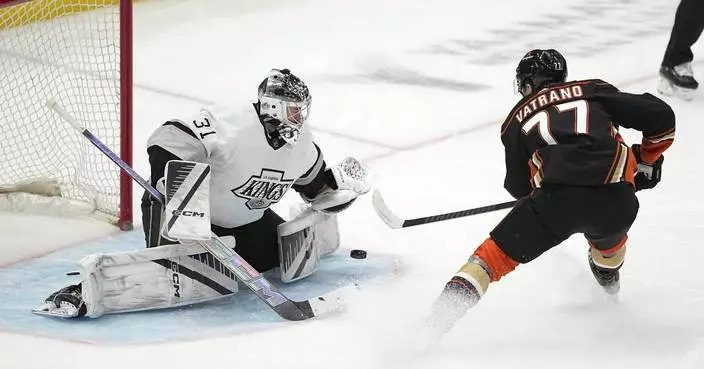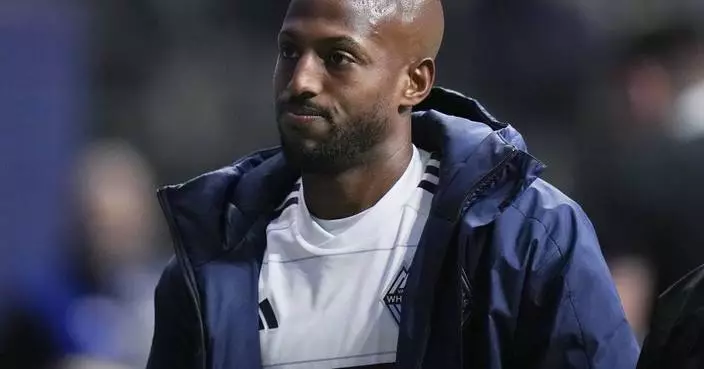Venezuelan opposition leader Juan Guaidó said military police raided the home of his uncle early Thursday, a week after the relative was arrested on his return with Guaidó to Venezuela.
On Twitter, Guaidó described the search of Juan José Márquez's home as another act of persecution by a “cowardly dictatorship” that will not deter the opposition movement.
An Associated Press journalist saw a police vehicle parked in front of the Caracas apartment building where Márquez lives. An officer in a black mask later drove off in the vehicle.
Marquez's small children were inside the home at the time of the police raid, said his attorney, Joel García.
Márquez traveled to Venezuela with Guaidó, who had completed an international tour in which he sought support for the opposition's campaign to oust President Nicolás Maduro.
Márquez was promptly arrested and accused of transporting explosives, an allegation that Guaidó has dismissed as absurd.
NCAA athletes will be immediately eligible to play no matter how many times they transfer — as long as they meet academic requirements — after the association fast-tracked legislation Wednesday to fall in line with a recent court order.
The NCAA announced the Division I Council's decision becomes official Thursday when its meeting adjourns. The change still needs to be ratified by the DI Board next week, but that is expected.
The new rules will go into effect immediately, though in reality they have already been enacted through a lawsuit filed late last year.
Transfer windows, which are sport-specific, remain in place and require undergraduate athletes to enter their names into the portal at certain times to be immediately eligible at a new school. Graduate students can already transfer multiple times and enter the portal outside the windows while maintaining immediate eligibility.
A coalition of state attorneys general late last year sued the NCAA, challenging rules that forced athletes that wanted to transfer multiple-times as undergraduates to sit out a season with their new school.
A judge in West Virginia granted the plaintiffs a temporary injunction, lifting requirements for multiple-time transfers to request a waiver from the NCAA to be immediately eligible to compete.
The NCAA quickly requested the injunction be kept in place throughout the remaining school year to clear up any ambiguity for athletes and schools. The association has had to issue guidance to its members to clarify what that means for next season. Now the rules match the court ruling.
By eliminating the so-called year-in-residence for transfers, an athlete must be academically eligible at the previous school and not subject to any disciplinary suspension or dismissal to compete immediately at a new school. Transferring athletes must also meet progress-toward-degree requirements before competing.
“We hope that this practical approach to transfer eligibility requirements will encourage student-athletes to make well-informed decisions about transferring and the impacts such a move could have on their ability to graduate on time in their degree of choice, particularly as it relates to transferable credits,” Florida deputy athletic director and council chairwoman Lynda Tealer said in a statement.
The board will ask the committee on academics to explore creating a new metric — similar to the NCAA's Academic Progress Rating — that would hold schools accountable for graduating the transfers they accept.
The portal windows are currently open for both football and basketball, and the lifting of restrictions on multiple-time transfers has led to an uptick in athletes looking to switch schools.
In a notable move that would not have been permissible without a waiver under previous rules, Alabama offensive tackle Kadyn Proctor entered the portal in January after Crimson Tide coach Nick Saban retired, committed to Iowa, but then changed his mind during the spring and has reentered the portal with the intention to reenroll at Alabama.
The DI Council also moved forward on legislation that would allow schools to be more actively involved in securing sponsorship deals for their athletes. Schools could still not directly pay athletes, but they could facilitate NIL opportunities between third parties and athletes.
AP Sports Writer John Raby in Charleston, West Virginia, contributed to this report.
Follow Ralph D. Russo at https://twitter.com/ralphDrussoAP and listen at http://www.appodcasts.com
AP college football: https://apnews.com/hub/college-football
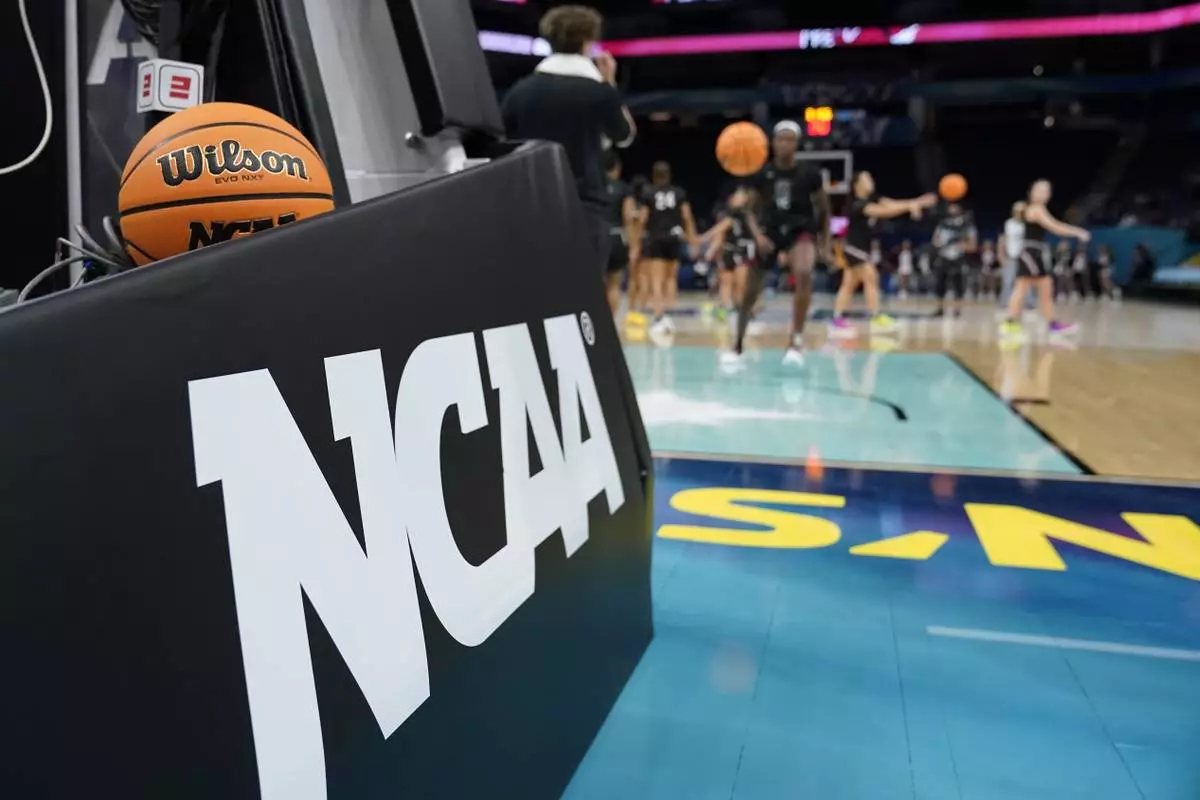
FILE - South Carolina players work out during a practice at the Women's Final Four NCAA college college basketball tournament, Saturday, April 2, 2022, in Minneapolis. NCAA athletes will be immediately eligible to play no matter how many times they transfer — as long as they meet academic requirements — after the association fast-tracked legislation Wednesday, April 17, 2024, to fall in line with a recent court order. (AP Photo/Eric Gay, File)
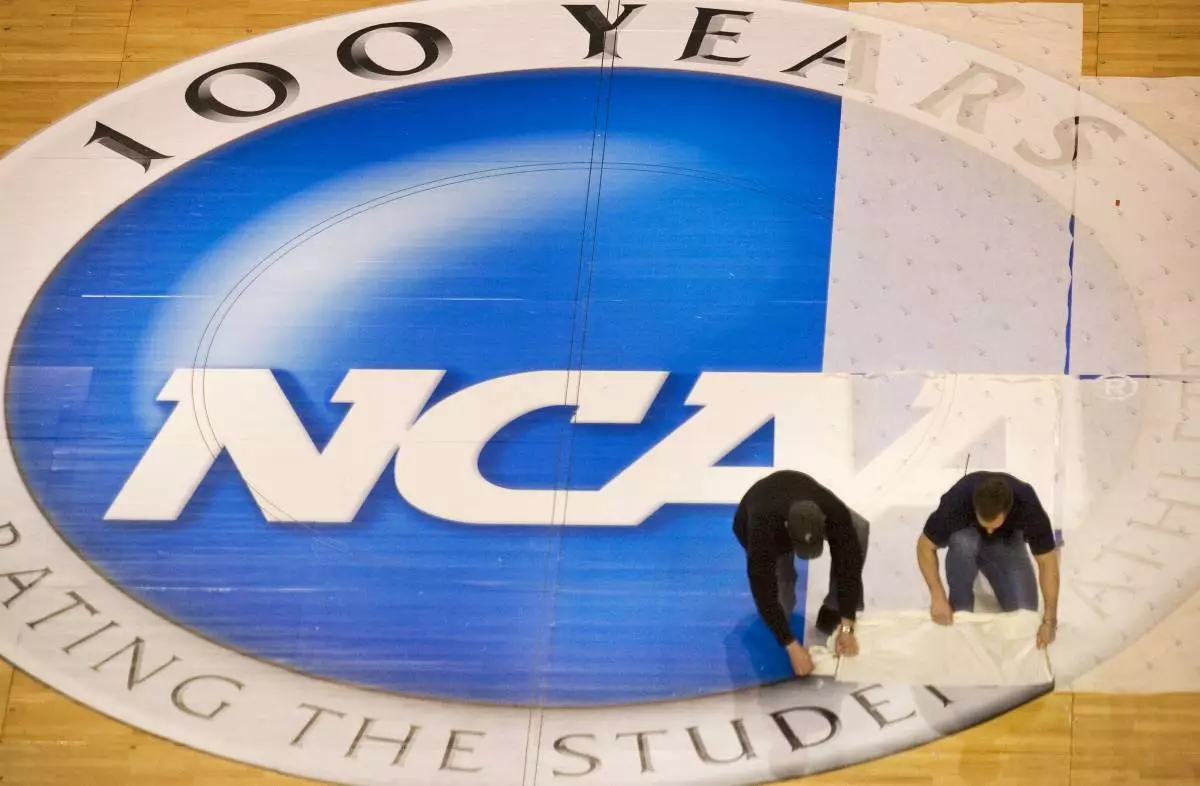
FILE - Wachovia Center operations manager Jim McDonald, left, and carpenter foreman Tim Allen remove the protective film covering the NCAA logo at mid-court on the center's basketball court, Wednesday, March 15, 2006, in Philadelphia. NCAA athletes will be immediately eligible to play no matter how many times they transfer — as long as they meet academic requirements — after the association fast-tracked legislation Wednesday, April 17, 2024, to fall in line with a recent court order. (Ed Hille/The Philadelphia Inquirer via AP, FIie)





